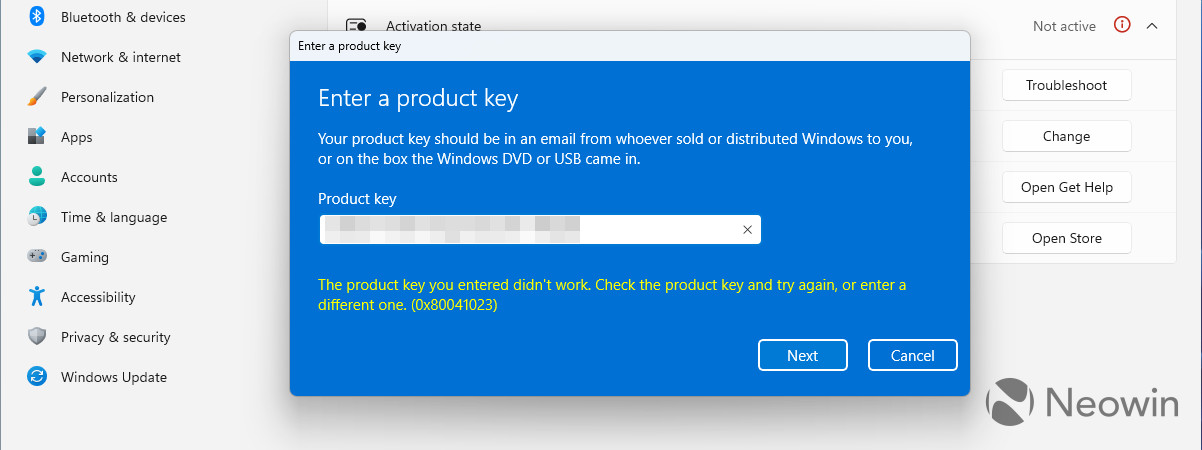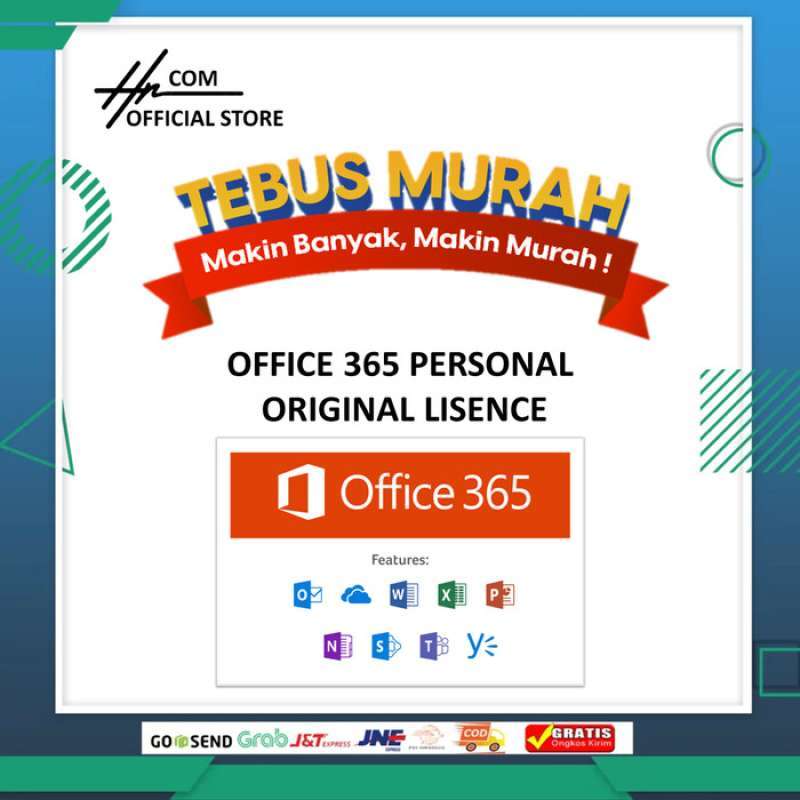Good Tips On Selecting Windows Microsoft Office Professional Activation Sites
Good Tips On Selecting Windows Microsoft Office Professional Activation Sites
Blog Article
Window 10/11's Pro And Home Product Prices That Are "Too Amazing To Be Real"? Here's 10 Tips To Help You Stay Clear Of Them
When purchasing Windows 10/11 Pro or Home product activation/license keys, encountering "too too good to be true" pricing is a frequent danger. These deals might be tempting but they could also carry unintentional risks. Here are ten top strategies to avoid scams and other issues that may arise with cheap prices.
1. Compare Official Pricing
To find out the typical price for a genuine Windows license, visit the Microsoft Store as well as other reliable retailers such as Amazon, Best Buy or Newegg.
Discounts that are significant (over 50 percent off) from the usual price could mean that the key is copyright, stolen or not authentic.
2. Learn about common cost ranges
Windows 10/11 Home keys are usually priced between $100 and 140 dollars.
Windows 10/11 Pro Keys are typically priced between $140 and $200. Anything less than this is a red flag.
3. Incredibly low prices often indicate Illegal Sources
Keys for sale at prices of $5, $10 or $20 are likely sourced through illegal or unethical means, such as:
Stolen from legal purchases
Obtained via unauthorised volume licensing.
Created using software piracy techniques.
Microsoft might cancel your account, create legal issues, or cease to provide assistance if you purchase such keys.
4. Avoid "Lifetime Activation" Guarantees
Be wary of sellers who claims a key is a "lifetime activation" for a surprisingly low price. Such keys can be able to bypass Microsoft activation procedures. This could lead to problems during updates or when Microsoft detects this bypass.
5. Check the Credibility of the Seller
Check the credibility of a seller if they offer keys at an astronomical price. Check their history of customer ratings and reviews. A reputable seller has a solid track record with detailed, positive reviews.
Sellers with low reviews or a good reputation are more likely to sell dubious keys.
6. Beware of Sites Known as "Gray Market" Keys
Certain platforms, such as Kinguin or G2A or CDKeys are known for offering cheap keys that might not be legal or supported by Microsoft. Even if you discover deals that seem genuine, they could be fraudulent.
If you choose to utilize these sites, be sure that they have a solid buyer protection plan.
7. No Support or Warranty is a Warning Sign
The official software sellers provide assistance and a warranty to their clients. Keys that are sold by sellers who are cheap tend to not provide assistance or any type of guarantee. This may be an indication that the seller is not genuine.
If you encounter activation problems You may not have any recourse with unauthorized sellers.
8. Watch Out for "Digital Only" Online Sales without Reputable Platforms
Many scammers offer "digital-only" Windows keys at an affordable price via email or via websites that do not make use of reputable e-commerce websites.
You should only buy digital keys from platforms with good reviews and a solid track record for software sales.
9. Volume licenses are not available to individuals.
There are sellers who offer inexpensive keys under the guise of an Volume License. The claim is that they're legal for personal use. Volume Licenses are meant for schools, businesses as well as government agencies, not individuals.
The purchase of an VL key as an individual is not just not in compliance with Microsoft's rules, but also a risk since Microsoft is able to deactivate it at any time.
10. Check for steps of activation that are different from the normal procedures.
Beware of sellers who provide complicated activation steps, like using a third-party program calling a number, or performing manual tasks that are not typical. A genuine Windows keys should be straightforward to activate with the tools of the system or copyright.
Standard activation is as simple as entering your product key in the process of installing or logging into your copyright.
Quick Summary:
It was priced well below the typical market rate.
Sellers without a good reputation.
"Digital-only" sales with little transparency or assistance.
Claims of "lifetime activation" keys or those that cannot be transferred.
Microsoft doesn't require complex or manual activation.
Be aware of the risks and following these tips to avoid falling into the trap of "too too good to be true" prices and ensure that your Windows key is legitimate and long-lasting. Follow the recommended Windows 11 pro key for website advice including windows 11 pro license, buy windows 10 pro, buy windows 11, buy windows 10 pro, windows 10 pro product key, Windows 11 price, windows 10 pro key, windows product key windows 10, buy windows 11 key, windows activation key 10 and more. 
What Kind Of License Do You Need To Purchase When Purchasing Microsoft Office Professional Plus 2019/2021/2024?
It's important to know the different types of licenses available when purchasing Microsoft Office Professional Plus 2019 or 2021. This will assist you pick the most suitable one to meet your needs. Different licenses have different terms as well as support options and limitations. Here are ten tips that will help you to choose between the various license types.
1. Learn about the primary types of licenses
Microsoft Office Professional Plus comes in three types of licenses: Retail, OEM (Original Equipment Manufacture) and Volume Licensing. Each type is subject to specific terms and restrictions:
Retail: A one-time purchase that is usually associated with a particular user. It can be transferred (within the users' own personal space) to another device.
OEM A device that is installed only on the first device. It cannot be transferred. It is usually less expensive, but not as adaptable.
Volume Licensing: Suitable for educational institutions or businesses providing a flexible solution for many users.
2. Retail Licenses with Flexibility
Retail licenses give you the most flexibility. It is possible to install Office on any device, and later transfer the license to an upgraded computer or a new one. This is the best choice for users who want to upgrade their hardware or switch devices over time.
3. OEM licenses at lower cost
OEM licenses, while cheaper typically tied to specific devices and can't be moved. They are only available for computers pre-installed Office by the manufacturers. OEM licenses can be an option when creating or upgrading your own computer. But, they can limit your options.
4. Understand the concept of Volume Licensing
Volume licensing is intended to be used by businesses, educational institutions, and government organizations. This option may be most efficient in the event that Office is purchased for a large number of devices and users. This solution offers central administration, simple deployment and volume discounts.
5. Multiple Device Licenses Multiple Device Licenses
Retail licenses usually cover one or two devices. (Example: desktop and laptop) Volume Licenses however, in contrast could be used to cover hundreds or thousands of devices depending on your agreement. When purchasing, ensure you know the number of devices you are covered by your license.
6. Verify if the license is transferable.
Retail licenses can generally be transferred between devices (as long as they are disabled on the prior device) however, OEM licenses are locked to the original device and can't be moved. This is a consideration to take into account if your intention is to regularly change computers.
7. Consider the difference between User Licenses Vs. Device Licenses
Certain licenses are assigned to a individual user, while others are allocated to devices. If you're purchasing for one user who can access Office across multiple devices, search for licenses that are user-based, such as the ones included in Microsoft 365 subscriptions or Volume Licensing.
8. Evaluation of Support and Updates
Microsoft usually provides full support to retail licenses, and volume licenses are also supported by regular updates. In contrast, OEM licenses may have limitations on support and the software may not get updates once the device it's tied to is no longer supported by the manufacturer.
9. Understanding Upgrade Licensing
Volume Licensing and Retail Licenses allow you to upgrade Office to the latest version for a reduced price or via Microsoft Software Assurance.
OEM licenses typically do not offer upgrades. If you plan to upgrade Office, you may require a different licence.
10. License Agreement Terms
When purchasing any version of Office Professional Plus, always go over the terms and conditions of the license agreement offered by Microsoft. The license agreement will describe any restrictions, rules for transfer, or rights of use across different devices or for specific uses. Knowing the terms will help you to avoid any unexpected limitations.
Conclusion
Your specific needs will determine the type of license you choose for Microsoft Office Professional Plus 2019. 2021 or 2024, depending on whether you're an individual, a business or an organisation. Understanding the differences among Retail, OEM, Volume Licensing is essential to help you make a decision that's based on your needs in terms of pricing, flexibility, or scalability. Examine the licensing terms to make sure you are buying the right version. See the top rated buy microsoft office 2021 for blog recommendations including Office 2021 key, Microsoft office 2019, Office 2019 product key, Office 2021 key, Ms office 2019, Ms office 2021, Office 2021 key, Microsoft office 2021, Microsoft office 2019, Ms office 2019 and more.